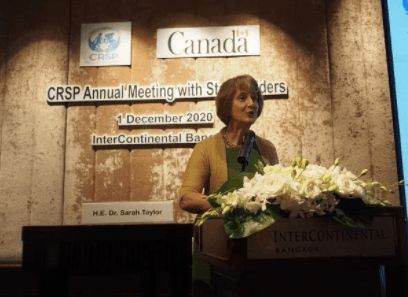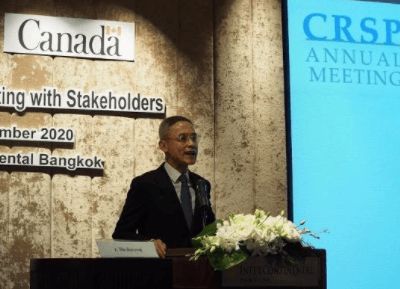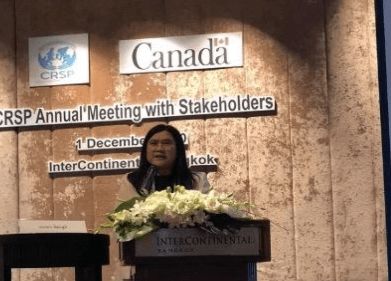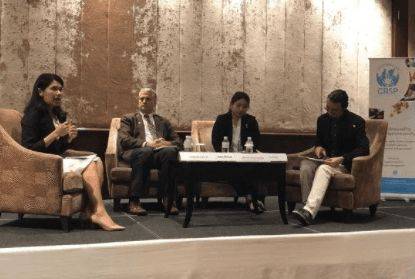Written by Chawaratt Chawarangkul, IDC Southeast Asia Programme Manager
On 1st December 2020, the Coalition for the Rights of Refugees and Stateless Persons (CRSP) and the Canadian Embassy of Thailand co-organised the CRSP Annual Meeting with Stakeholders at the InterContinental Bangkok hotel. Over 80 people from a diverse group of stakeholders in Thailand, including government agencies, INGOs, UN agencies, and diplomatic missions, came together to more cohesively and confidently map out and articulate their strategic priorities on the Alternatives to Immigration Detention of Children MOU (ATD MOU), as well as the National Screening Mechanism (NSM) for refugees in Thailand.
IDC observed that all stakeholders are willing to advance refugee rights and protections in Thailand, work collaboratively to end immigration detention of children, and share good practices with the international community. IDC captured key statements from critical speakers at the meeting, which could be used to support the work of IDC’s members globally on alternatives to detention.

H.E. Dr. Sarah Taylor, Ambassador of Canada to Thailand
“Refugees contribute to the economy, political landscape and create diversity in their new country. Both Thailand and Canada welcomed asylum seekers and refugees. Canada also implements the alternative to detention where detention is considered as a last resort, while Thailand now implements the alternative to the detention of children. This, plus the new screening mechanism, shows signs of progress in Thailand. It is important to work collaboratively among all sectors to protect refugees, and also increase human resources that can contribute significantly to host countries.”

Prof. Emeritus Vitit Muntarbhorn, Faculty of Law Chulalongkorn University; former UN Special Rapporteur, UN Independent Expert, and Member of the UN Commission of Inquiry on Human Rights
“The ATD MOU should be extended to the whole family while the temporary protection should be offered to Rohingya. The NSM should cover all individual refugees. There are three issues for further consideration among stakeholders, including prevention, protection, remediation, coupled with sustainable solutions. Thailand should consider ratifying the Refugee Convention of 1951 and its 1967 protocol with political and social will to work on refugee management.”

Ms. Kornkanok Wathanabhoom, CRSP Secretariat, Asylum Access Thailand Policy and Communications Coordinator
“Our ultimate goal is for all refugees and stateless persons to receive protection and exercise their human rights under Thailand’s refugee management system, which is fair, transparent, effective, and in compliance with international standards. Through this, we are working closely with all stakeholders to support Thailand to prohibit the immigration detention of all children and their caregivers, in both practice and legislation, with community-based alternatives to detention available for them.”

Ms. Thientong Prasanpanich, Director of Protection System Development Division, the Department of Children and Youth, Thailand
“At present, the success of the ATD MOU is on an individual level when it should be more systematic. We believe that working as a network is crucial, and it is also important to discuss human rights protection within the national security framework. The ATD MOU’s goal is never to place any child in detention, and we expected a clear systematic approach where all Ministries involved in the MOU come to work together in the near future.”
Since 2013, IDC continues to support our members in Thailand to end immigration detention and promote the rights and dignity of all who migrate. In 2020, we facilitated our members in Thailand to develop their national strategy to end the immigration of children and establish the national screening mechanism in Thailand. This work was the impetus, and provided the foundation for the CRSP Annual Meeting with Stakeholders. We are proud to see CRSP, our strategic partner in Thailand, take ownership of this national strategy and present it to such a diverse group, in order to facilitate and encourage collaboration among key stakeholders.